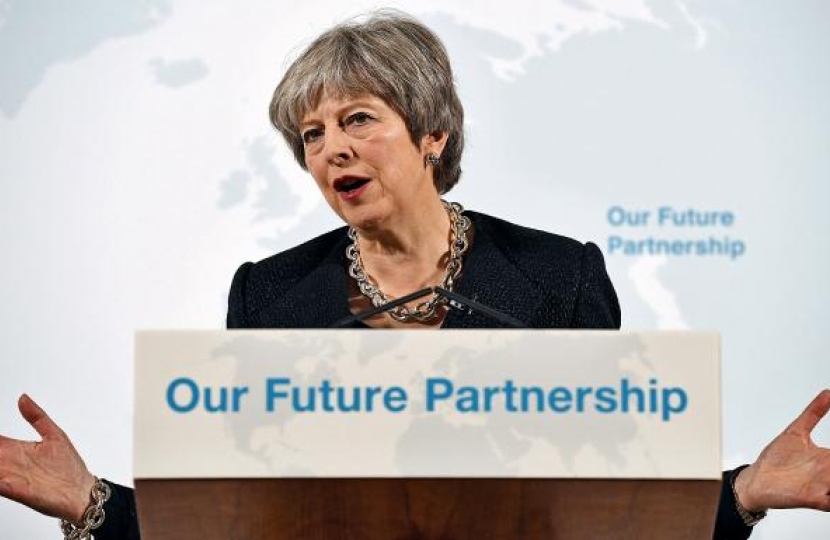
On Friday 2nd March, the Prime Minister delivered her detailed vision for the UK’s relationship with the EU after Brexit in a speech at Mansion House in London. She based her speech on five key foundations of what an agreement with the EU should achieve: respect for the referendum, durability, the protection of jobs and security, consistency with modern and outward-looking British values, and the strengthening of the union of nations and people in the UK.
During the speech, the Prime Minister tackled a broad set of negotiating points that included customs arrangements, security cooperation, data protection, European agencies, financial services, broadcasting and science and innovation. She advocated a bespoke and mutually beneficial free trade agreement that did not mimic an “off the shelf deal” such as those previously seen between the EU and Canada and Norway.
I was happy to see the Prime Minister add detail to positions that can now be taken forward as credible negotiating points with the EU. She was right to acknowledge the constraints that will necessarily come from our departure from the single market and Customs Union but I was encouraged by the optimistic tone of cooperation that she struck and the reassurances that she gave about the position of strength that we hold in terms of trade deficits, skills and financial services.
This included references to industries and sectors that I have taken a personal interest in during my time in Parliament. In broadcasting, for example, the Prime Minster recognised that we will no longer operate under the EU’s country of origin principle but said that we will be in a position of negotiating strength given that a staggering 30% of EU channels are provided by UK broadcasters. The same is true across the digital sector and I was glad to hear the Prime Minister describe how we could play a world leading role in digital technologies outside of the EU digital single market. A similar principle applies in the financial services sector, given the vast amount of debt and equity in the EU that is underwritten by banks located in the UK.
The message was certainly clear: the UK is a strong and thriving economy that has a huge amount to offer across a number of sectors and is well placed to thrive outside of the EU. Cooperation was also a key part of the speech but I am glad that this important point was not forgotten. With these strengths reasserted and detail added to some of the most important positions that the UK must take into negotiations, I look forward to working with the Prime Minister and the Government as the Brexit process moves forward to what could and should be a mutually beneficial outcome for the UK and the EU.
